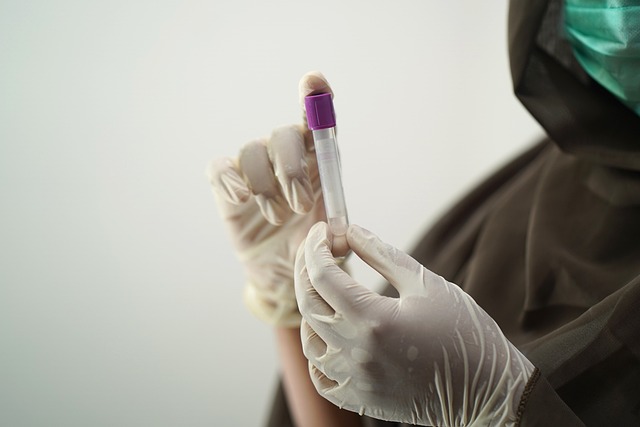Healthcare marketing services must adhere to stringent HIPAA regulations to protect patients' Electronic Protected Health Information (ePHI). This involves a cultural shift towards privacy and security, comprehensive employee training, robust data security measures like encryption, access controls, and regular audits. Prioritizing HIPAA compliance not only meets legal obligations but also builds patient trust, ensuring responsible data handling within the digital health ecosystem.
In today’s digital era, healthcare marketing agencies must navigate a complex landscape of data privacy regulations, especially concerning patient information. The Health Insurance Portability and Accountability Act (HIPAA) sets the standard for protecting sensitive healthcare data. This comprehensive guide explores HIPAA-compliant strategies tailored to healthcare marketing services. From understanding the basics of HIPAA to implementing encryption technologies, managing consent, and auditing procedures, each section ensures your marketing campaigns adhere to strict privacy standards while fostering patient trust.
Understanding HIPAA: The Basics of Healthcare Data Privacy

HIPAA, or the Health Insurance Portability and Accountability Act, is a cornerstone of healthcare data privacy in the United States. It sets standards for protecting sensitive patient information, ensuring that healthcare providers, insurers, and their partners maintain the confidentiality, integrity, and availability of this data. For healthcare marketing services, understanding and adhering to HIPAA regulations is paramount. This includes implementing robust security measures like encryption, access controls, and regular security audits to safeguard electronic protected health information (ePHI).
Compliance goes beyond technical solutions. It involves a cultural shift within organizations, fostering a strong commitment to privacy and security. Healthcare marketers must ensure that all staff are trained on HIPAA policies and procedures, with clear guidelines for handling patient data responsibly. By embracing these practices, healthcare marketing services can not only meet legal obligations but also build trust with patients, demonstrating their dedication to protecting personal health information in the digital age.
The Role of Marketing in Protecting Patient Information

In the realm of healthcare, where patient privacy is paramount, marketing plays a delicate yet crucial role in balancing promotion and protection. Marketing strategies for healthcare organizations must adhere to stringent regulations, particularly when it comes to handling sensitive patient information. HIPAA (Health Insurance Portability and Accountability Act) compliance is not just a legal requirement; it’s a cornerstone of ethical practice.
Healthcare marketing services need to approach their campaigns with meticulous care, ensuring every touchpoint respects patient confidentiality. This involves implementing robust data security measures, obtaining proper authorizations for marketing activities, and anonymizing patient data where possible. By fostering trust through transparent practices, healthcare marketers can engage patients and advocates without compromising the integrity of protected health information, thereby contributing to a safe and effective healthcare environment.
Identifying HIPAA Compliance Requirements for Marketing Agencies

Marketing agencies that cater to the healthcare industry must be well-versed in HIPAA regulations, particularly when handling sensitive data related to their clients’ medical practices. The Health Insurance Portability and Accountability Act (HIPAA) sets strict guidelines for protecting individual health information, ensuring privacy and security. For marketing professionals offering healthcare marketing services, understanding these requirements is paramount.
Identifying the specific compliance needs involves recognizing the types of protected health information (PHI) that may be accessed or shared during marketing campaigns. This includes patient records, treatment details, and billing information. Marketing agencies must implement safeguards to ensure data security, such as encryption methods, access controls, and secure storage solutions. Additionally, they should establish policies for employee training, incident reporting, and business associate agreements to maintain compliance with HIPAA standards while delivering effective healthcare marketing strategies.
Developing Secure Data Handling Procedures for Healthcare Marketing

In the realm of healthcare marketing, where sensitive patient data is at the forefront, developing secure data handling procedures is non-negotiable. This involves implementing robust strategies to protect personal health information (PHI) throughout its lifecycle, from collection and storage to transmission and disposal. Marketing teams must adopt a HIPAA-compliant approach, ensuring that all activities adhere to the Health Insurance Portability and Accountability Act’s stringent privacy regulations. This includes employing encryption for data at rest and in transit, limiting access to PHI only to authorized personnel, and regularly auditing logging to track access and changes made to patient records.
By integrating these measures into healthcare marketing services, organizations can safeguard not just the privacy of patients but also maintain public trust. Secure data handling procedures ensure that marketing campaigns leveraging patient stories or clinical trial results do so responsibly, without compromising confidentiality. This commitment to HIPAA compliance is a cornerstone in building a reputable and reliable brand within the healthcare sector.
Implementing Encryption Technologies to Safeguard Patient Data

In today’s digital age, healthcare organizations must prioritize patient data security to maintain trust and compliance with HIPAA regulations. Implementing robust encryption technologies is a strategic move to safeguard sensitive information. By encrypting data at rest and in transit, healthcare providers ensure that even if there’s an unauthorized access attempt, the encrypted data remains unreadable and unusable without the decryption key. This process significantly reduces the risk of data breaches, making it an essential component of any comprehensive cybersecurity strategy for healthcare marketing services.
Advanced encryption methods, such as full-disk encryption and file-level encryption, offer multi-layered protection. Full-disk encryption secures all data stored on devices, while file-level encryption focuses on specific files or folders, providing flexibility in protecting diverse types of patient records. These technologies are particularly valuable for healthcare marketing services that handle vast amounts of sensitive data, ensuring compliance with HIPAA standards and fostering a culture of data security within the organization.
Training Staff on HIPAA Regulations and Best Practices

In the realm of healthcare marketing services, ensuring compliance with HIPAA regulations is paramount. One vital strategy involves training staff on these critical standards and best practices. By educating employees about protected health information (PHI) handling, privacy rules, and data security measures, organizations can create a culture of awareness and responsibility. Regular workshops, webinars, and interactive sessions are effective ways to keep everyone informed about evolving HIPAA requirements.
This training should cover topics such as proper documentation procedures, access controls, encryption protocols, and incident response plans. Armed with this knowledge, staff members from various departments—from administrative roles to marketing teams—can contribute to a robust security posture. Their proactive participation in maintaining patient privacy and data integrity is key to upholding the trust of both patients and partners in today’s digital health landscape.
Ensuring Consent Management and Patient Privacy Rights

In the realm of healthcare marketing services, ensuring patient consent and privacy is paramount. Healthcare organizations must implement robust systems to obtain and manage patient consents, especially when dealing with sensitive data. This involves clear communication about how patient information will be used, who has access to it, and what rights patients have regarding their records. A comprehensive consent management strategy ensures that patients are fully informed and voluntarily agree to the disclosure of their health data.
By adhering to these practices, healthcare marketing professionals can respect patient privacy rights while engaging in effective promotional activities. This includes providing patients with options for consent withdrawal and ensuring that all processes comply with HIPAA regulations. Such adherence fosters trust between healthcare providers and their patients, strengthening the foundation for successful marketing initiatives within this sensitive sector.
Navigating the Use of Third-Party Vendors in Marketing Campaigns

In today’s digital landscape, healthcare organizations increasingly rely on third-party vendors for marketing campaigns to reach and engage their target audiences. However, navigating this relationship requires meticulous care to ensure compliance with HIPAA (Health Insurance Portability and Accountability Act). When integrating healthcare marketing services from external partners, it’s crucial to establish clear agreements that outline data handling procedures, security measures, and responsibilities for protecting patient privacy.
Vendors should be selected based on their understanding of HIPAA regulations and ability to implement robust data governance practices. Organizations must also maintain oversight and regular audits to confirm vendors are adhering to the agreed-upon protocols. This collaborative approach ensures that marketing campaigns effectively utilize third-party resources while preserving the confidentiality, integrity, and availability of protected health information (PHI).
Regular Audits and Updates: Maintaining HIPAA Compliance Long-Term

Regular, comprehensive audits are a cornerstone of long-term HIPAA compliance within healthcare marketing services. These meticulous reviews ensure that policies and procedures remain robust against evolving privacy standards and potential security threats. By scheduling periodic audits, practices can identify and rectify any non-compliance issues before they escalate into significant breaches. This proactive approach not only safeguards sensitive patient data but also fosters trust between healthcare providers and their clientele.
Staying ahead of HIPAA regulations involves continuous updates to both technology and human protocols. As digital health solutions advance, so too do the risks associated with data security. Healthcare marketing services must commit to staying informed about these advancements, ensuring that their systems and staff are equipped to handle new privacy challenges. Regular updates not only maintain compliance but also enhance the overall efficiency of patient data management, ultimately contributing to improved healthcare outcomes.
